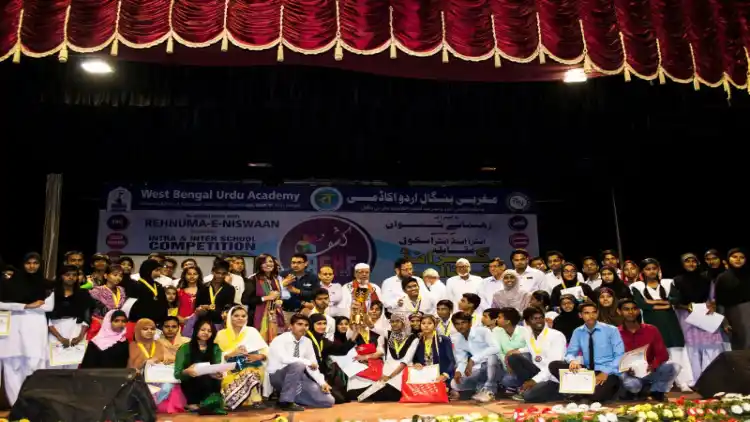
Mohammed Safi Shamsi/Kolkata
A Kolkata based NGO has taken on improving the public speaking skills of the students of the Urdu medium schools so they they come up as impressive personalities and good communicators in life.
Rehnuma-e-Niswaan (ReN) took the online route and introduced Urdu kids to public speaking and drama, activities that are usually associated with high-end institutions affordable for the well-off people.
"We have been working among students of Urdu schools for two decades. Like elsewhere, here too the pandemic affected students. We thought of reaching our students online. For most families and students in our circles, this activity is unique and a new experience,” says Tabassum Siddiqua, founder, ReN.
The public speaking sessions were conducted by Shakir Hussain, a reputed teacher. Around 21 students participated in this online activity. The training in the drama was offered by Canadian playwright Jawaid Danish. Eighteen students took the sessions. ReN is keen on introducing storytelling.
The pandemic has apparently hurt the children of families with lesser means more ReN, however, took the challenge head-on and went started online classes on extracurricular activities with students.
Interacting online may not sound unusual for well-to-do families; it’s a big thing for the have-nots.
West Bengal has 16 lakh Urdu speaking people. While the affluent among them prefer the English medium schools, the majority send their children to the Urdu medium schools.
The online school directory on the West Bengal Board of Secondary Education enlists 33 Urdu-medium schools, including four junior schools. A search result on the website of West Bengal Council of Higher Secondary Education shows Urdu as a subject in 43 schools, located in 10 districts.
Seventeen affiliated and aided Urdu-medium madrasas are also listed under the West Bengal Board of Madrasa Education. Besides, like the rest of the country, a section of Urdu-speaking children study at unaffiliated schools and madrasas.
Children in Urdu medium schools have a common set of hurdles to cross. These include social and financial problems back home, quality of teaching and infrastructure, vacant teaching posts, absence of extra-curricular activities, limited exposure to technology.
However, students who have come in touch with the ReN have done well in life. Md. Iqbal Adil is pursuing a Master’s degree in Urdu. He came in touch with ReN when he was in the 11th standard
“I have volunteered in over 100 (ReN) programmes. They motivate and encourage children to believe in themselves. I did acquire leadership skills through the activities,” he told Awaz-the Voice.
"Children in Urdu schools, for various reasons, feel low and lack motivation. There should be more cultural activities like there are in English medium schools. This can help them in discovering their hidden talent,” he adds.
Uzma Parveen, who has completed her secondary education in an Urdu medium school says, “Students in Urdu medium schools usually do not get a platform that encourages them to explore their skills. I was an introvert. Now, I dare to express myself more confidently,” She came in contact with ReN in 2019.
Tabassum Siddiqua, founder, ReN, was a teacher in a school in north Kolkata’s Narkeldanga area. She found there was nothing beyond academics in the school for students.
On her own, she started guiding schoolgirls in crafts after school hours. Over the months this culminated into a community project and attracted the attention of state officials engaged in improving the condition of religious minorities. This facilitated a more professional and coordinated approach.
“We observed two things - most girls were availing training as a hobby, there was no end-result in terms of being financially independent. Second, we understood that trainers involved need to be professional as well,” says Siddiqua.
In 2000, the informal approach was renamed as Rehnuma-e-Niswaan, an organisation propagating women’s empowerment. Later, in 2006, boys were also included in their programmes.
“We do not have too many members, but the work we do covers a large number of schools and in turn hundreds of students aged 14-20. Now, sub-groups are working under our banner,” Siddiqua says.
ReN, at present, offers a fashion designing course to women. It also has another programme, Kashf, in which the ReN members visit schools and pick the most-performing school for an inter-school activity competition The organization also offers scholarships to talented students.
The organization has got financial support from the government two times and it manages with crowd funding.
